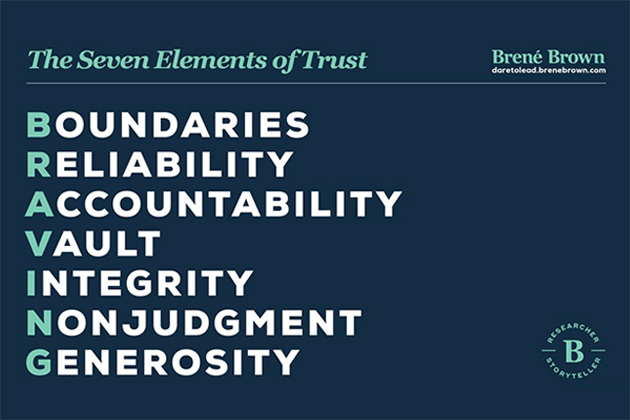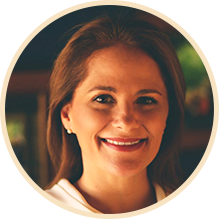Chapter 06
How To Build Trust In Relationships
Featured Articles
Why Is Building Trust Important?


When we are building trust with someone, we are able to feel safe around them, physically, emotionally, and psychologically.
This trust lowers our barriers and allows us to create a genuine connection with the person. It allows us to be vulnerable, open, and to be able to share what is coming up for us in life.
Only when you really trust someone is when communication can flow freely. That is when you can tackle any challenges, become open to exploring possibilities, and think more creatively. This is all because you are interacting with a person in whom you have confidence.
In a coaching relationship, if you are not building trust, there is no way for your client to be open. If your client does not feel safe to share, no matter how much you want to help, transformation will not be possible.
You cannot invest your energy in guarding yourself with someone you don’t trust, and also building a life you really want.
John Gottman shares that, in addition to being important in marriages and other intimate relationships, building trust is essential to what makes human communities of all kinds work. In other words, without trust there can be no meaningful connection between people.
In order to create transformation in your clients’ lives, you need to be able to dig deep into the way they see their world. This will happen when they trust you.
How Does Trust Show Up?
When someone trusts you, their engagement and energy levels go up, they feel seen and heard, and they are committed to move forward with your support.
They will also learn to trust themselves, which is huge! This builds self-accountability, fuels motivation and incites action. All of which are indispensable factors in your client’s long-term journey.
Brené Brown emphasizes the importance of breaking down the concept of trust into specific qualities and behaviors so that it can be more easily understood. She uses an acronym called BRAVING.
The Seven Elements Of Building Trust


You respect my boundaries, and when you’re not clear about what’s okay and not okay, you ask. You’re willing to say no.

You do what you say you’ll do.

You own your mistakes, apologize, and make amends.

You don’t share information or experiences that are not yours to share. I can feel safe being open and vulnerable with you.

You choose courage over comfort. You choose what is right over what is fun, fast, or easy. And you choose to practice your values rather than simply professing them.

I can ask for what I need, and you can ask for what you need. We can talk about how we feel, without judgment.

You extend the most generous interpretation possible to the intentions, words, and actions of others.
How Building Trust Works In A Coaching Relationship
Now that you understand the importance of building trust and its seven elements, let’s dig deeper into how to build trust using the BRAVING acronym.
Boundaries
Make sure you are very clear on what your boundaries are and then communicate them clearly to the other person.
In a coaching relationship, when each party understands and respects each other’s boundaries, it gives a sense of ease, and allows the relationship to flow freely.
In the first session, it’s very important that you explain what the coaching relationship will look like, and cover the boundaries and agreements. This will increase your client’s trust in you and the process.

What is acceptable and what is not? Is physical touch ok or are you uncomfortable with it? (eg. hugging)
Time management: If they miss a session, how will you handle it? Can they reschedule? How much time in advance do they have if they need to cancel a session?
How will you prefer to manage your communication? What are your available times to communicate between sessions?
What are your fees? What are the payment policies? Will you take full payment before the sessions? Do you have payment plans? Do you charge by the session or by package? What are the cancellation policies?
What clauses can terminate the coaching relationship?
Reliability
You need to be consistent and dependable with your clients in your process of building trust with them. Always do what you say. This is why it’s important that you set up an agreement with your client at the beginning of your coaching relationship.
This agreement not only summarizes the boundaries, but it also helps paint a clear picture for what your client can expect from the coaching relationship, what they can expect from you, and what they need to give in return.

What can your client expect from you as their coach?
What does your client need to compromise to do?
How will each of you show up in the coaching relationship?
Accountability
We are human beings and I can assure you that we all make mistakes! Life is dynamic and complex, and there will be a time when something will get in the way of delivering something that you said you would.
When this time comes, make sure you don’t shy away from the situation. Instead, be open to admit when you make a mistake. Apologize when it’s needed and take the necessary action to correct it.

For example, you said you were going to send your client a meditation after your session, but you were feeling exhausted. Make sure you communicate this to your client and set a different time when you will send the meditation.
This behavior will not only increase their trust in you, but will also relieve the pressure on them of trying to be perfect all the time. Being accountable does not mean you have to be perfect!
Vault
One of the biggest gifts you can give a client is for them to come into a space that is safe.
Our brains are wired for survival and we are always looking for ways to protect ourselves from perceived danger, disappointment, or unpleasant feelings. When you are working with another human being inside a coaching relationship, you want them to feel completely safe, heard, and seen.

This allows them to be vulnerable and open with you. This openness will allow them to go deep within their world, and create insights that will help them shift their lives.
So when you begin a coaching relationship, always remind your clients that everything they say is confidential. Help them feel safe. Make sure you are really present for them, turn off all distractions, and focus on the person sitting across from you.
Integrity
Be willing to do everything in your hands to powerfully serve your client. Even when it comes to asking the questions that no one else dares to ask, or say what no one else has dared to say.
Always be honest, courageous, and transparent in your communication. Act in line with your core values and with your client’s best interest at heart.
Integrity, said author C.S. Lewis, “is doing the right thing, even when no one is looking.”

If you feel that something is violating your core values, make sure you communicate this openly to your client. Firmly, but without judgment.
Non-judgment
Remember the importance of creating the vault where your client feels safe? One of the core elements of the vault is to offer a space free of judgment.
Understand that we all come from different cultures, different life experiences, and different beliefs. It’s also important to know that we are all in different parts of our life journey, and this is OK.

When we approach our coaching conversations from a place of open-mindedness and non-judgment, it gives our clients the opportunity to really process what is going on for them. This is the only way they can really grow and expand their limitations. It makes the process of building trust faster and easier.
Generosity
We have two main values here at Evercoach: Serve, & Love. These core values are at the core of everything we do.
The way we approach our clients, the way we create our programs, and the way we show up every day. These values encompass true generosity.
When you are able to give yourself fully with an open heart, miracles happen in your clients’ lives. Believe me, they feel it!

So today, after reading this article, I invite you to take some time to reflect on what trust means for you.
Think about five people that you really trust, and then reflect on why you trust them. Think about your relationship with them and what gifts trust has brought into your life
Learn More
Not sure if your current coaching relationship is healthy and trustworthy? Click here to learn the 7 warning signs of a toxic relationship and how to fix it.

Francesca Facio
This article was written by:
Francesca Facio is a Human Optimization coach, international speaker, and trainer in life design. She is also the Learning Experience Designer, and one of the head coaches for Certified Business Coach by Evercoach. With a postgraduate degree in Happiness and Organizational wellbeing, and certification in Pranic Healing, she combines the Western practices of coaching with the Eastern practices of healing to help her clients find their life purpose, ignite their passion and take the steps towards their personal freedom.